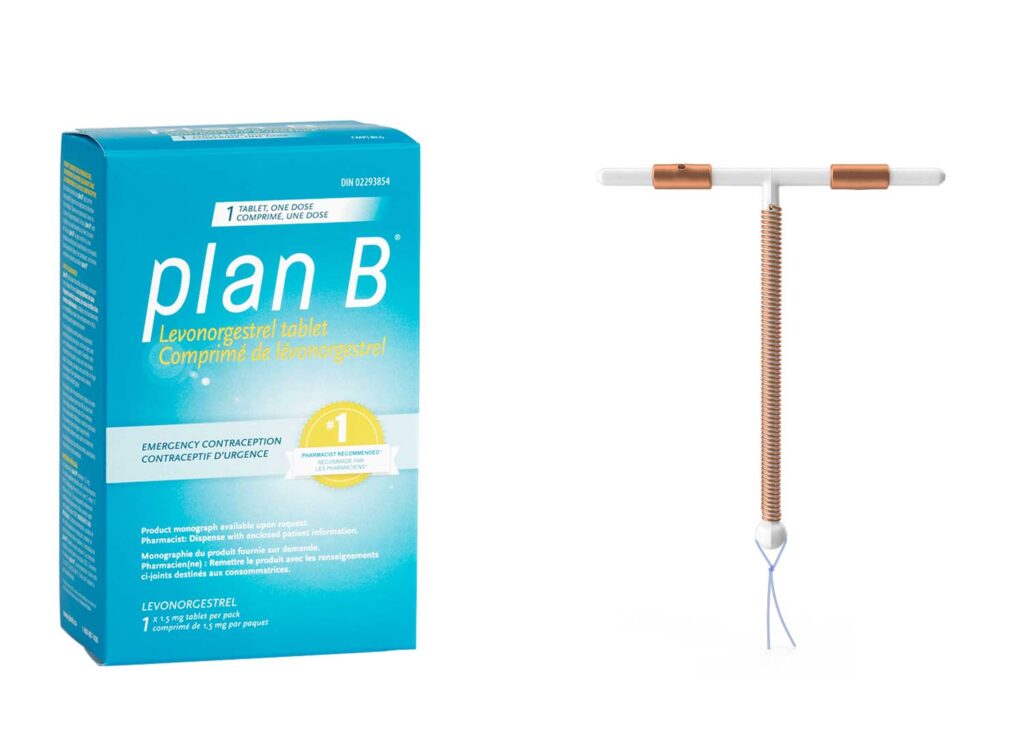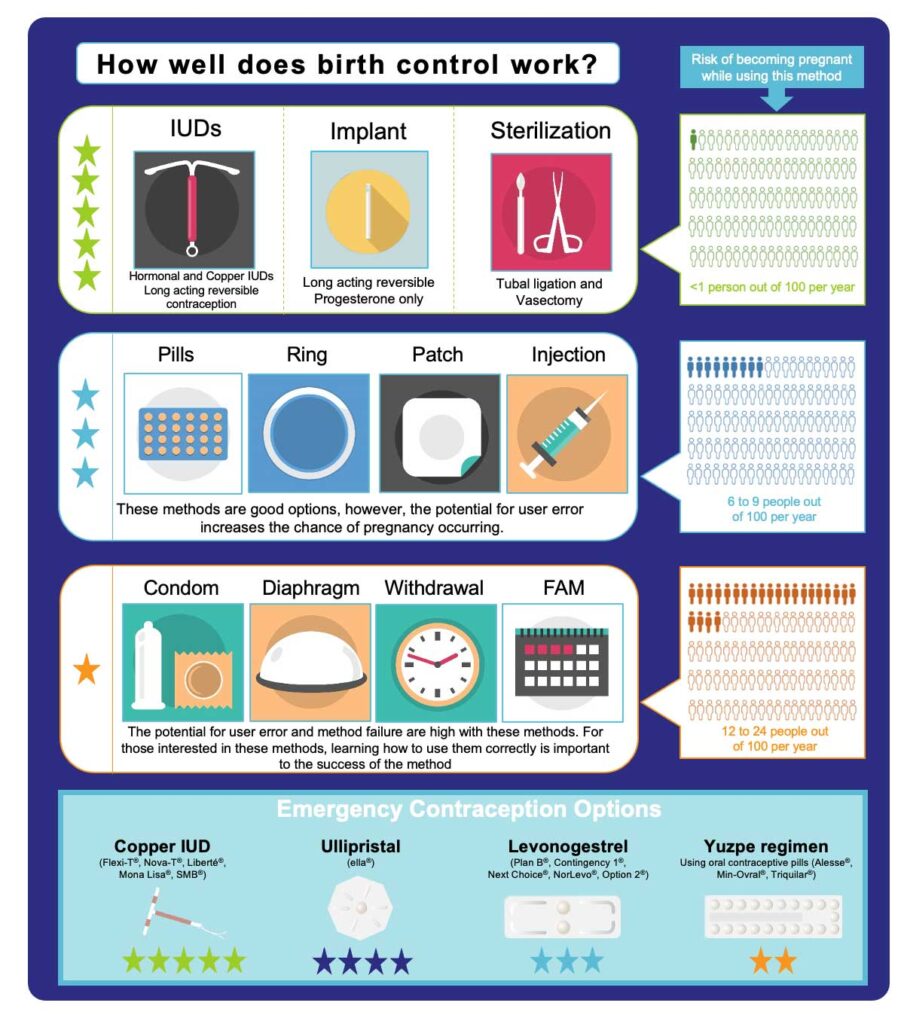Plan B is one type of emergency contraction. This may also be known as the morning-after pill.
There are two main types of emergency contraception: pills and the copper IUD. Pills work well, don’t cost a lot, and are usually easy to get. The copper IUD works very well, but it must be inserted by a healthcare provider.
- Pills used for emergency contraception are sometimes called “morning-after pill.” They can be used up to 5 days after unprotected sex.
- The most common option contains a progestin hormone.
- Another option is a medicine called ulipristal (Ella). It affects the progesterone in your body.
- Some birth control pills are also used. If you already take birth control pills, you may be able to use the pills you have as emergency contraception. Talk to your healthcare provider to find out the correct doses.
- A copper IUD is a small, T-shaped plastic device that is inserted into your uterus. Copper wire is wound around the stem of the IUD. It can be placed up to 7 days after unprotected sex to prevent pregnancy. The copper IUD can stay in place for up to 10 years. Your healthcare provider may talk to you about leaving it in for longer.

How does it work?
Emergency contraception pills work by preventing ovulation, fertilization, or implantation.
The hormones in these pills may prevent fertilization by stopping the ovary from releasing an egg (ovum). They also make the fallopian tubes less likely to move an egg toward the uterus. The pills are also thought to thin the lining of the uterus. The thickened endometrium is where a fertilized egg would normally implant and grow.
A copper IUD for emergency contraception may prevent fertilization or the egg from implanting.
Where do you get it?
You can get emergency contraception without a prescription at most drugstores.
Some types of emergency contraception, such as ulipristal acetate (for example, ella) are available only from family planning clinics or with a prescription from a healthcare provider.
Birth Control Pills
If you already have birth control pills on hand, you may be able to use them for emergency birth control. Talk to your healthcare provider to find out the correct doses.
IUD
You can get an IUD from many healthcare providers, from university and public health clinics, and in most hospital emergency rooms. An IUD must be inserted by a healthcare professional.
Preventing pregnancy may result by trying one of the following Contraception Methods:

Risk of becoming pregnant while using each method:
- IUDs • Sterilization <1 person out of 100/year
- Pills • Rings • Patch • Injection 6 – 9 people out of 100/year
- Condom • Diaphragm • Withdrawal • FAM 12 to 24 people out of 100/year
